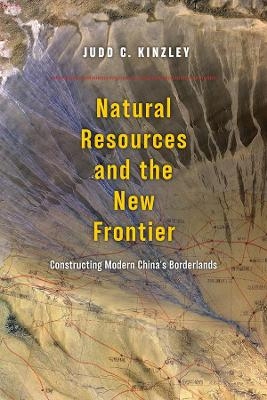
Natural Resources and the New Frontier
Constructing Modern China's Borderlands
Seiten
2018
University of Chicago Press (Verlag)
978-0-226-49229-2 (ISBN)
University of Chicago Press (Verlag)
978-0-226-49229-2 (ISBN)
A history of China’s Xinjiang Province that shows how the hunt for natural resources determined how Chinese and Russian authorities viewed and tried to control it over the years.
China’s westernmost province of Xinjiang has experienced escalating violence, cycles of interethnic strife, and state repression since the 1990s. Searching for the roots of these growing tensions, most of the research on the region has tended to zero in on ethnic clashes and political disputes. In Natural Resources and the New Frontier, historian Judd Kinzley takes a different approach—one that works from the ground up to explore the infrastructural and material basis for state power in the region and how it helped create and shape these tensions.
As Kinzley argues, Xinjiang’s role in producing various natural resources for regional powers served as an important, but largely overlooked factor in fueling unrest. He carefully traces the buildup to this unstable situation over the course of the twentieth century by focusing on shifts in mining and industrial production policies that were undertaken by Chinese, Soviet, and provincial officials. Through his detailed archival work, Kinzley offers a new way of viewing Xinjiang that will shape the conversation about this important region. Moreover, his detailed analysis offers a new way of viewing borders as sites of “layered” state formation that will serve as a model for understanding the development of other Chinese peripheries and, more generally, the development of frontier zones across the Global South.
China’s westernmost province of Xinjiang has experienced escalating violence, cycles of interethnic strife, and state repression since the 1990s. Searching for the roots of these growing tensions, most of the research on the region has tended to zero in on ethnic clashes and political disputes. In Natural Resources and the New Frontier, historian Judd Kinzley takes a different approach—one that works from the ground up to explore the infrastructural and material basis for state power in the region and how it helped create and shape these tensions.
As Kinzley argues, Xinjiang’s role in producing various natural resources for regional powers served as an important, but largely overlooked factor in fueling unrest. He carefully traces the buildup to this unstable situation over the course of the twentieth century by focusing on shifts in mining and industrial production policies that were undertaken by Chinese, Soviet, and provincial officials. Through his detailed archival work, Kinzley offers a new way of viewing Xinjiang that will shape the conversation about this important region. Moreover, his detailed analysis offers a new way of viewing borders as sites of “layered” state formation that will serve as a model for understanding the development of other Chinese peripheries and, more generally, the development of frontier zones across the Global South.
Judd Kinzley is assistant professor of history at the University of Wisconsin at Madison.
| Erscheinungsdatum | 12.06.2018 |
|---|---|
| Zusatzinfo | 18 halftones, 8 tables |
| Sprache | englisch |
| Maße | 152 x 229 mm |
| Themenwelt | Geisteswissenschaften ► Geschichte ► Regional- / Ländergeschichte |
| Naturwissenschaften ► Biologie ► Ökologie / Naturschutz | |
| Sozialwissenschaften ► Politik / Verwaltung | |
| Sozialwissenschaften ► Soziologie ► Spezielle Soziologien | |
| Technik ► Elektrotechnik / Energietechnik | |
| Wirtschaft | |
| ISBN-10 | 0-226-49229-X / 022649229X |
| ISBN-13 | 978-0-226-49229-2 / 9780226492292 |
| Zustand | Neuware |
| Haben Sie eine Frage zum Produkt? |
Mehr entdecken
aus dem Bereich
aus dem Bereich
Erinnerungen
Buch | Softcover (2024)
Pantheon (Verlag)
16,00 €
Universalgelehrter, Polarreisender, Entdecker
Buch | Hardcover (2024)
mareverlag
28,00 €


